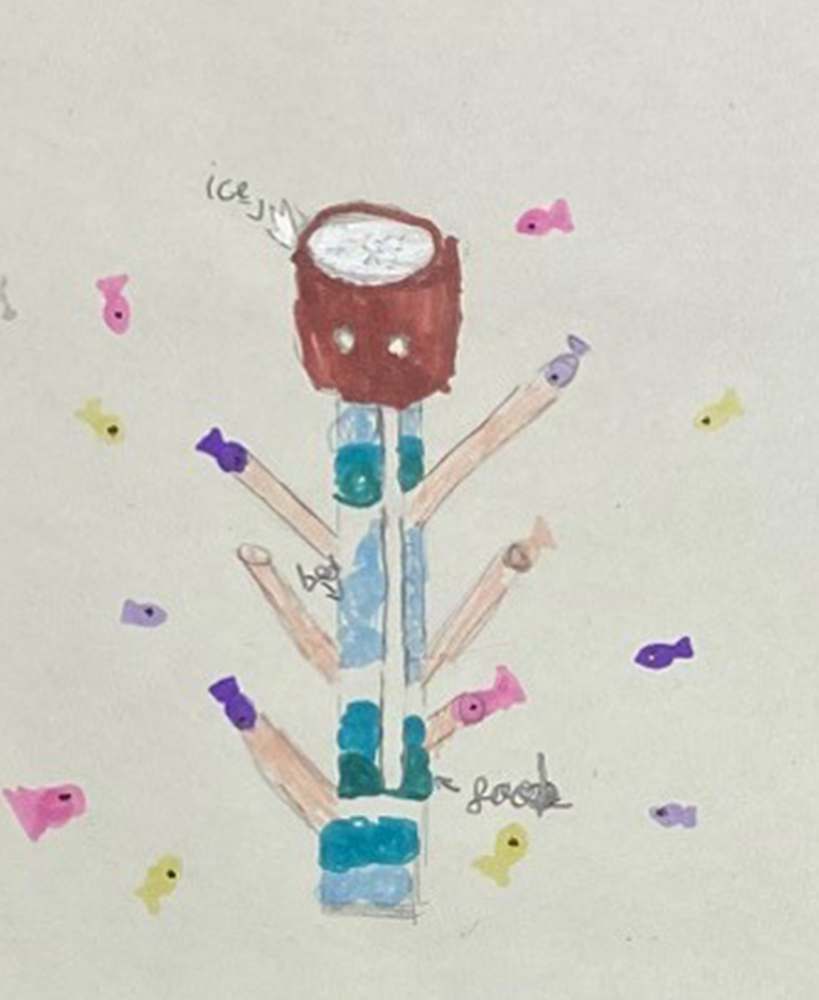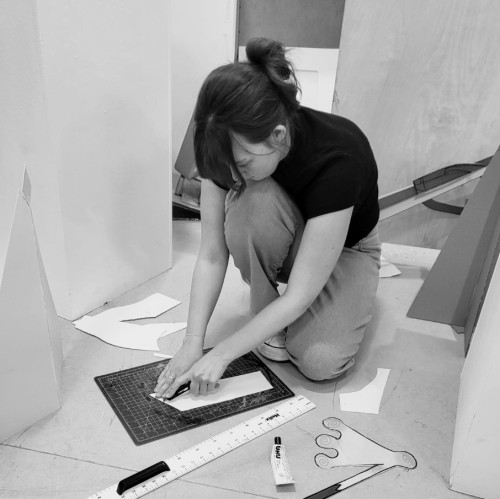Helper

Blog entries

This is the result of our making process of the Helper. We ended up with a full scale model, a character cardboard cut out and a poster. We also made some extra elements like a range of different felt fish to hand out to visitors of the exhibition and the rest of the little inventors.

We made a poster to go alongside the model for the Exhibition to help to bring together all aspects of the little inventors design. We used a range of blue tones and colourings that resembled the child's drawings. This added warmth and a more realistic aesthetic to the underwater model.

To go alongside the model, the little inventor drew a character who would operate the Helper. It was important we made this Character engaging and so we animated it, cut it out and made a stand to allow it to be presented well.

To create a fun and colourful model which would resemble the child’s drawing and to catch the viewers eye, we added lots of interesting materials like tissue paper, coral and craft paper.

The most crucial part of the model was the smaller details which added texture and more context to the model. We used a 3D pen to make coral and coloured felt to manufacture fish surrounding the model.

We started by creating the main body of the Helper by using cardboard, tubing and an MDF base. This made a strong and stable structure before adding blue and white paint. By mixing different colours we made a range of tones which made the Helper come to life!

To bring the Helper to life I worked alongside Jennifer Reid and Iris Scott. As a group of three, we began the making process by rendering and sketching out the design both by hand and digitally. This helped us to gain a more coherent and in-depth understanding of the design as well as highlight the smaller elements of the design that we could have overlooked.